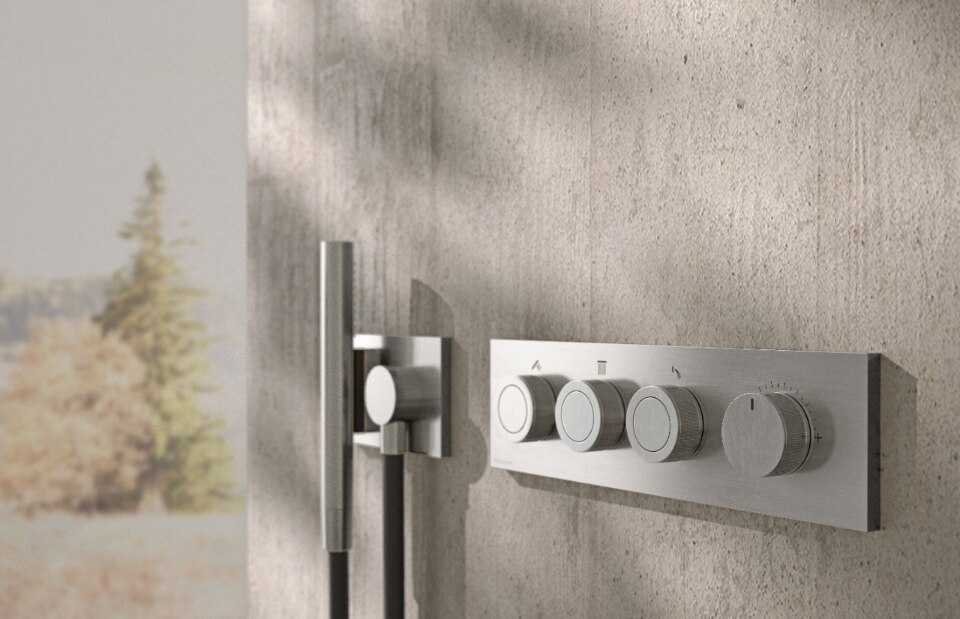This article was originally published on the supplement Ecoworld, Domus 1058, june 2021.
Each year, the world generates something like 55 million tons of electronic waste. In turn, they contain about nine million tons of non-reused glass. The Belgian members of Studio Plastique were motivated by these numbers to design Common Sands, a collection of household objects made with glass collected from discarded kitchen appliances. Their broader scope is to investigate the circularity of objects, render their project scalable, and broaden it to include different product categories.
Studio Plastique analysed the silica components created with natural sand: glass, fibreglass and silicon. These easy-to-recycle materials intrinsically contain the aesthetics and performance of new products, but one fundamental problem is that the production chain limits the reuse of these materials. At the moment, the gathering of glass waste from electric and electronic appliances does not allow for the usual recycling processes of vitreous materials, because the variability of the silica’s characteristics make it unsuitable to the glass industry’s standards as a secondary raw material. Treatments such as metal oxide coating and colouring make things more difficult. Precisely this diversity piqued the interest of Studio Plastique and became a distinctive trait of the collection.

From the start of its research in 2016, it has made vases, furnishing elements and tiles. The latter were developed in collaboration with the firm Snøhetta and Fornace Brioni after more than three years of experimentation. Studio Plastique is addressing scalability by “signing agreements with recycling plants, craftspeople and local industries. We are finding resources in our vicinity and inserting them into the supply chains that already exist or are being constituted now. We attempt to follow the traditions and techniques of local glass production so that we can test and produce a wide variety of products – household items, windows and materials for architecture, all made using local resources. The material determines and informs the function,” says Plastique.
Common Sands is critical of industrial systems. “Our aim is to develop good applications. Our objects call into question the standard production of industrial glass, whose large-scale goal is a structural material, homogeneous and of the same colour, while Common Sands is exactly the opposite. Each lot is different from the next. We challenge the paradigm of consumption by re-establishing a relationship between the resources and the production, making consumers become more aware and involved. We want the objects to tell us what their provenance is, who handled them, and at what costs to the environment. To this end, each of our items is engraved and labelled with detailed information that tells the story of their preceding life. This is to recreate a lost connection between product and user.”

STARBOX 4160: Roller Blind Excellence
Mottura introduces STARBOX 4160: a system that marries sophisticated design and cutting-edge technology, for ultimate control of light and temperature.



























